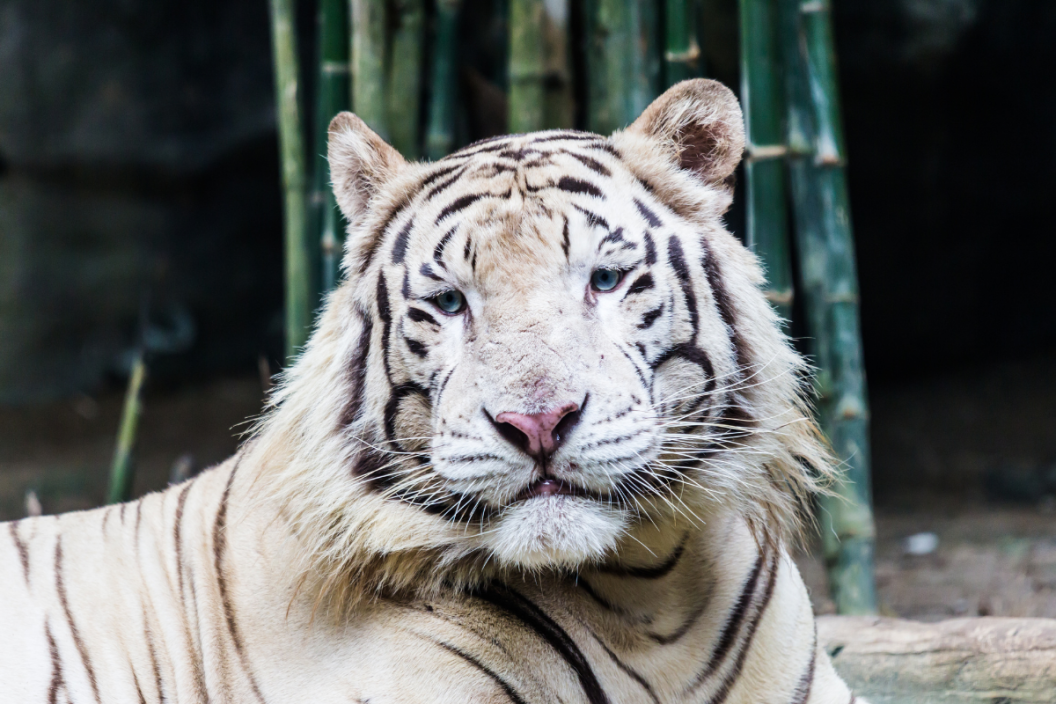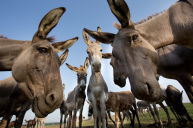Down syndrome is a genetic disorder caused by abnormal chromosomes, but can animals get down syndrome like humans?
Anyone who remembers the animals with down syndrome "trend" on the internet a few years ago (just a quick search online will bring you many listicles and images of said animals), might remember Kenny the White Tiger or Otto the kitten, animals made internet-famous by people claiming that these mammals suffer from down syndrome.
But while we are all for inspiring and adorable animals, we want to go ahead and separate fact from fiction when it comes to animals with down syndrome. Spoiler alert: it's pretty much a myth!
What is Down Syndrome?
Down syndrome is a genetic disorder that's caused by abnormal cell division, resulting in an extra copy of chromosome 21. Cells are where chromosomes are contained, and typically, people are born with 23 pairs of chromosomes — with half inherited from the mother and the other half from the father.
The Mayo Clinic tells us about this chromosomal abnormality:
"Down syndrome is a genetic disorder caused when abnormal cell division results in an extra full or partial copy of chromosome 21. This extra genetic material causes the developmental changes and physical features of Down syndrome."
Simply said: humans with this chromosomal defect may have an extra or partial human chromosome 21. Down Syndrome is also referred to as Trisomy 21.
Can Animals Have Down Syndrome?

The short answer is no.
Because the genome structure between humans and animals are so distinctly different, it's hard to say that the duplication of chromosomes would have the same outcomes on animals like in human down syndrome. For one, humans have 23 sets of chromosomes while dogs have 39 and cats have 19.
That being said, primates like chimpanzees are the only animal known to have chromosomal abnormalities that can somewhat resemble human down syndrome. Chimps have 24 pairs of chromosomes compared to the 23 in humans.
However, there are scientists using genetically-engineered animal models, such as mouse models, to conduct deeper research on Down Syndrome. While it's very likely that animals with down syndrome are just fiction, conditions like genetic mutations and inbreeding (like in the case of Kenny, a falsely-claimed tiger with down syndrome rescued in 2002 by the Turpentine Creek Wildlife Reserve) can present themselves with symptoms like down syndrome. There are several health conditions that may present physical characteristics, like poor muscle tone, that resembles down syndrome.
If you suspect you have a special needs animal, make sure you speak with your vet.
What is your take on animals with down syndrome? Let us know on the Wide Open Pets Facebook Page!
This article was originally published on March 24th, 2021.




